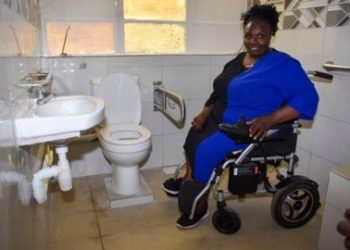The KEMRI-Wellcome Trust Research Programme (KWTRP) on Monday announced the launch of the second phase of the Initiative to Develop African Research Leaders (IDeAL 2.0) training Program in Nairobi.
The Initiative to Develop African Research Leaders (IDEAL) is hosted by KEMRI Wellcome Trust and aims to nurture talented young Africans into transformational health research leaders capable of reshaping the continent’s health research agenda and solutions.
Speaking during the launch Prof Sam Kinyanjui, the Director of IDeAL, thanked the funding partners, particularly the Wellcome Trust, FCDO, and the Science for Africa Foundation for their continued support in IDeAL’s journey towards the vision of “African-led research solving Africa’s and global health challenges”.
“IDeAL was established in 2008 in response to KWTRP’s remit which is to train an internationally competitive cadre of Kenyan and African research leaders to ensure the long-term development of health research in Africa,” Prof Kinyanjui said.
Prof Kinyanjui added that the training was initially done in an ad hoc basis, due to lack of dedicated training funds and was largely focused on developing internal capacity. However, in 2008, KWTRP embarked on a more systematic approach to nurturing local health research leaders that incorporated a wider national and regional focus.
Since then, the Programme has raised over £25million for capacity building, primarily from the Wellcome Trust (UK) and UKAID – with supplementary support from NIHR, DAAD, European commission, and other financiers. The operational platform that manages this funding and the associated training activities was designated “Initiative to Develop African Research Leaders (IDeAL)” in 2015.
IDeAL 2.0, which is funded till 2027 to the tune of USD 4.4 million through the Science for Africa Foundation, seeks to expand the Initiative’s activities beyond East Africa through formal partnership with the Centre for Infectious Diseases Research in Zambia (CIDRZ), Epicentre in Niger, University of Glasgow and Oxford in the UK and Strathmore and Pwani universities in Kenya. Thus IDeAL 2.0 students and fellows will benefit heavily from collective high quality research resources, collaborative supervision, mentorship and learning across these diverse partners.
IDeAL aims to foster sustainable health research capacity by cultivating a critical mass of local research leaders across various health domains, including laboratory sciences, epidemiology, clinical research, social sciences, health systems, and implementation research. The initiative utilizes a comprehensive framework, encompassing a graduate research internship scheme, high-quality Master’s, and PhD training, and the retention of trained individuals in their home country or the broader African context.
IDeAL prioritizes quality through financial support, operational assistance, a vibrant training environment, technical and leadership development, and post-training support, guided by core values of diversity, inclusivity, equity, and a long-term perspective.
Notably, the IDeAL’s standards are widely recognized, with numerous universities entrusting IDeAL’s secretariat with key responsibilities related to student recruitment, training, and progress tracking. Since 2008, IDeAL has successfully trained over 800 students, boasting a remarkable 90percent completion rate within the specified timeframe.
“As at 2023 the IDeAL program has trained 60 post-doctoral students, 127 PhD completed, 220 master, 276 graduate internships, 300 undergraduate and school graduates’ attachments,” Prof Kinyanjui said.
Many graduates have assumed leadership roles at both local and global levels, contributing significantly to the understanding of diseases such as malaria to guide vaccine development, and to the evidence for policy on universal health coverage, and the response to outbreaks such as the recent COVID-19 pandemic.















